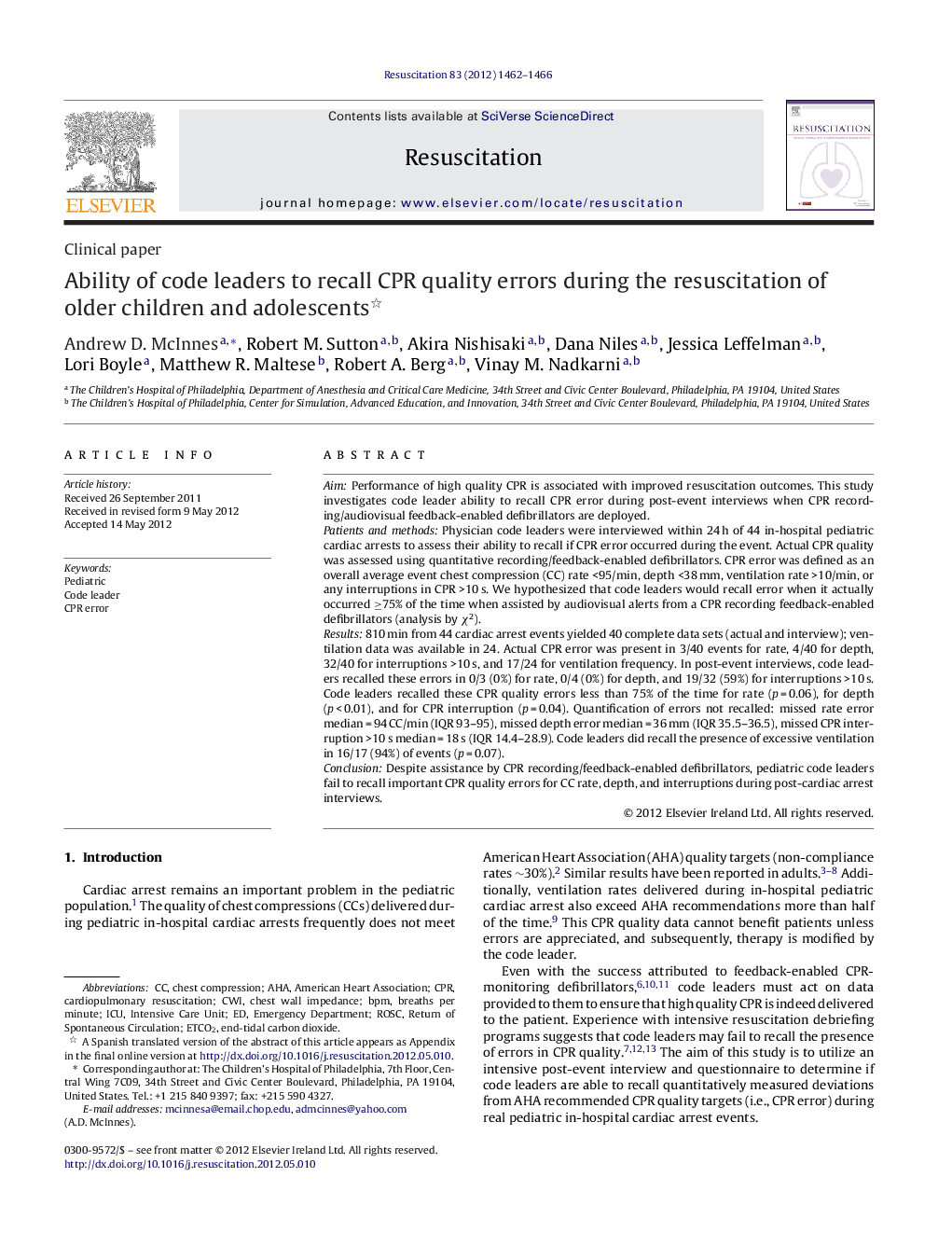| Article ID | Journal | Published Year | Pages | File Type |
|---|---|---|---|---|
| 5998906 | Resuscitation | 2012 | 5 Pages |
AimPerformance of high quality CPR is associated with improved resuscitation outcomes. This study investigates code leader ability to recall CPR error during post-event interviews when CPR recording/audiovisual feedback-enabled defibrillators are deployed.Patients and methodsPhysician code leaders were interviewed within 24 h of 44 in-hospital pediatric cardiac arrests to assess their ability to recall if CPR error occurred during the event. Actual CPR quality was assessed using quantitative recording/feedback-enabled defibrillators. CPR error was defined as an overall average event chest compression (CC) rate <95/min, depth <38 mm, ventilation rate >10/min, or any interruptions in CPR >10 s. We hypothesized that code leaders would recall error when it actually occurred â¥75% of the time when assisted by audiovisual alerts from a CPR recording feedback-enabled defibrillators (analysis by Ï2).Results810 min from 44 cardiac arrest events yielded 40 complete data sets (actual and interview); ventilation data was available in 24. Actual CPR error was present in 3/40 events for rate, 4/40 for depth, 32/40 for interruptions >10 s, and 17/24 for ventilation frequency. In post-event interviews, code leaders recalled these errors in 0/3 (0%) for rate, 0/4 (0%) for depth, and 19/32 (59%) for interruptions >10 s. Code leaders recalled these CPR quality errors less than 75% of the time for rate (p = 0.06), for depth (p < 0.01), and for CPR interruption (p = 0.04). Quantification of errors not recalled: missed rate error median = 94 CC/min (IQR 93-95), missed depth error median = 36 mm (IQR 35.5-36.5), missed CPR interruption >10 s median = 18 s (IQR 14.4-28.9). Code leaders did recall the presence of excessive ventilation in 16/17 (94%) of events (p = 0.07).ConclusionDespite assistance by CPR recording/feedback-enabled defibrillators, pediatric code leaders fail to recall important CPR quality errors for CC rate, depth, and interruptions during post-cardiac arrest interviews.
